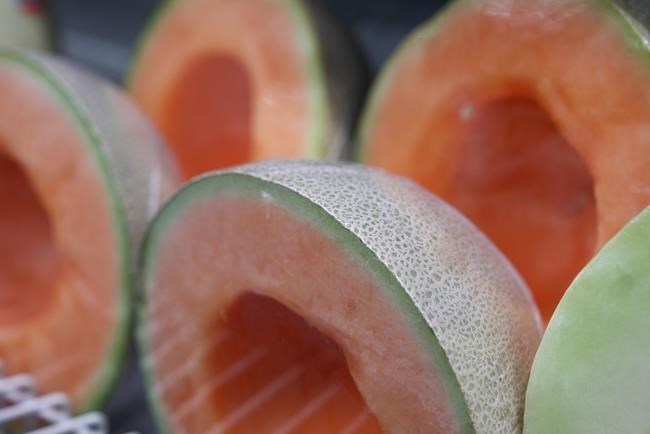OTTAWA — The Public Health Agency of Canada is reporting another death from a salmonella outbreak involving cantaloupes, bringing the total to seven.
The agency says there have been 164 lab-confirmed cases of salmonella in eight provinces linked to Malichita and Rudy brand cantaloupes so far.
Quebec has been hardest hit with 111 of those cases. There have also been illnesses in British Columbia, Alberta, Ontario, Prince Edward Island, New Brunswick, Nova Scotia and Newfoundland and Labrador.
The majority of people who became sick are children aged five and younger and adults aged 65 and older.
The agency says 61 people have been hospitalized.
It says if people have fresh or frozen cantaloupe at home and they are unsure what brand the fruit is, they should throw it out and wash their hands.
The Canadian Food Inspection Agency first issued recall warnings on Nov. 1.
The affected Malichita and Rudy brand cantaloupes were sold between Oct. 10 and Nov. 24.
The food inspection agency has also recalled fruit trays and other fruit such as honeydew, pineapple and watermelon that were processed alongside recalled cantaloupes.
Salmonella symptoms can include fever, chills, nausea, vomiting, diarrhea, headache and abdominal cramps. They usually start six to 72 hours after eating food contaminated with salmonella bacteria. Most people usually recover within a week.
The public health agency says those infected with salmonella can pass the illness on to other peopleand should not prepare food for others.
This report by The Canadian Press was first published Dec. 22.
Canadian Press health coverage receives support through a partnership with the Canadian Medical Association. CP is solely responsible for this content.
The Canadian Press



